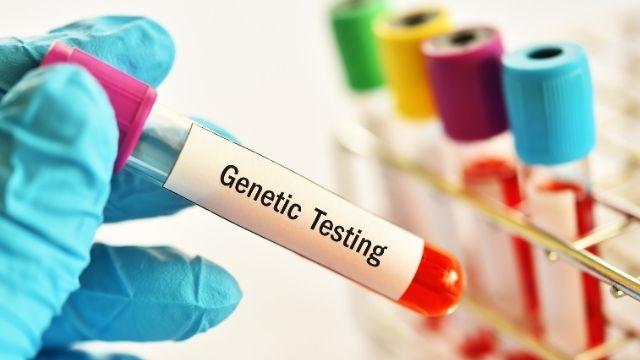In a groundbreaking move set to reshape the world of competitive sports, World Athletics has announced a new policy requiring female athletes to undergo genetic testing to verify their biological sex. The decision, unveiled Monday, aims to ensure fairness in women’s competitions amid ongoing debates around gender classification and eligibility criteria. This mandates controversial scrutiny of athletes’ genetic profiles, sparking intense discussion within the international sporting community and raising questions about privacy, ethics, and the future of gender verification in elite athletics.
World Athletics Introduces Mandatory Genetic Testing for Female Athletes
World Athletics has unveiled a groundbreaking policy requiring all female athletes to undergo mandatory genetic testing to verify their biological sex before participating in official competitions. This move aims to enforce fair play and address ongoing debates surrounding eligibility criteria in women’s sports. The new regulations specifically target the assessment of chromosomal markers, signaling a departure from previous protocols that primarily focused on testosterone levels. According to officials, this measure will enhance the integrity of the competition while providing a clearer framework for athlete classification.
Key components of the policy include:
- Comprehensive genetic analysis focusing on sex chromosomes
- Confidential handling of sensitive genetic information
- Mandatory testing prior to registration for all major events
- Provision for appeals and expert review panels
| Aspect | Previous Standard | New Requirement |
|---|---|---|
| Eligibility Criterion | Testosterone Level | Genetic Sex Verification |
| Testing Timing | Optional/Selective | Mandatory Pre-Competition |
| Data Privacy | Minimal Guidelines | Enhanced Confidentiality Measures |
Controversies and Support Surround Biological Sex Determination Policy
World Athletics’ recent mandate requiring genetic testing to verify female athletes’ biological sex has sparked intense debate across the sports community and beyond. Supporters argue that the policy is a necessary step to ensure fair competition, emphasizing the importance of creating a level playing field for all female athletes. They claim that traditional methods of sex verification have been insufficient in addressing naturally occurring variations in hormone levels and genetic traits, which can provide certain athletes with an undue advantage. Proponents highlight:
- Preservation of integrity in female sports categories.
- Clear scientific criteria for eligibility.
- Protection of athletes’ rights through standardized testing procedures.
However, the policy has also faced significant pushback on ethical and privacy grounds. Critics claim that mandating genetic testing invades personal privacy and reduces complex identities to mere biological criteria. Concerns have been raised over the psychological impact on athletes subjected to testing, the potential for public stigmatization, and questions about inclusivity toward intersex and transgender athletes. Human rights organizations and several athletes have voiced that such measures risk reinforcing exclusion rather than promoting fairness.
| Aspect | Supporters’ View | Critics’ Concerns |
|---|---|---|
| Fair Play | Ensures equitable competition | Oversimplifies complex traits |
| Privacy | Standardized, confidential protocols | Invasive genetic scrutiny |
| Inclusivity | Clear category definitions | Marginalizes intersex/trans athletes |
Implications for Athlete Privacy and Competitive Equity Explored
The recent mandate for genetic testing raises profound concerns regarding athlete privacy. Genetic information is deeply personal, and its disclosure risks unauthorized exposure of sensitive data. Female athletes subjected to these tests must weigh the intrusion on their bodily autonomy against the demands of regulatory compliance. Critics argue that such policies could create a slippery slope toward more invasive surveillance measures in sports, possibly deterring participation, especially among those from vulnerable communities or regions with less robust privacy protections. Additionally, the management and storage of genetic data introduce significant privacy challenges that sports organizations need to address transparently.
From a competitive equity standpoint, the policy aims to ensure a level playing field but opens debate over where biological boundaries should be drawn. The reliance on genetic markers to define eligibility may oversimplify the complex interplay of genetics, environment, and training in athletic performance. Concerns include:
- Potential marginalization of intersex athletes or those with differences of sex development (DSD)
- Unintended consequences on competition fairness beyond binary sex categories
- Challenges in establishing universally accepted criteria amid scientific ambiguity
Below is a simplified overview of the potential impacts this policy might have on various stakeholder groups:
| Stakeholder | Primary Concern | Possible Outcome | |
|---|---|---|---|
| Female Athletes | Privacy invasion | Reduced participation, stigma | |
| Sports Federations | Enforcement difficulty | Increased disputes, legal challenges | |
| Stakeholder |
Primary Concern |
Possible Outcome |
|
| Female Athletes | Privacy invasion | Reduced participation, stigma | |
| Sports Federations | Enforcement difficulty | Increased disputes, legal challenges | |
| Intersex and DSD Athletes | Marginalization and exclusion | Limited access to competition, psychological impact | |
| Privacy Advocates | Data protection and consent | Calls for stricter regulations and transparency |
If you’d like, I can help you further refine this, or assist with additional sections on the topic!
Recommendations for Transparent Implementation and Ongoing Review
To ensure the policy is applied with fairness and clarity, full transparency in the implementation process is crucial. Athletic governing bodies should publicly disclose the criteria and procedures involved in genetic testing, including how data privacy is maintained and which entities have access to sensitive information. This openness will foster trust among athletes, officials, and the public, mitigating concerns about privacy violations and potential discrimination. Furthermore, establishing clear communication channels for athletes to ask questions and appeal decisions promotes accountability throughout the enforcement phase.
An ongoing review mechanism should be embedded at the core of the policy to accommodate advancements in science and evolving social perspectives. This can take the form of a multidisciplinary advisory panel comprising geneticists, ethicists, legal experts, athlete representatives, and human rights advocates, meeting regularly to assess the impact and effectiveness of the genetic testing mandate. Below is a proposed framework for continuous evaluation:
| Review Component | Key Focus | Frequency |
|---|---|---|
| Scientific Advisory Board | Update genetic testing methods | Annual |
| Ethics Oversight Committee | Assess ethical implications | Semi-annual |
| Athlete Feedback Forums | Gather firsthand athlete experiences | Quarterly |
| Public Reporting | Publish compliance and impact reports | Annual |
- Regular data audits to ensure accuracy and fairness
- Adaptive policy updates reflecting new evidence
- Inclusive stakeholder engagement in decision-making processes
The Conclusion
As World Athletics moves forward with its mandate requiring genetic testing to determine the biological sex of female competitors, the policy is poised to ignite further debate over fairness, privacy, and the rights of athletes. While supporters argue the measure is necessary to maintain a level playing field in women’s sports, critics raise concerns about ethical implications and potential discrimination. As the global athletics community adjusts to these new guidelines, the conversation surrounding gender, biology, and competition is likely to continue evolving in the months and years ahead.





